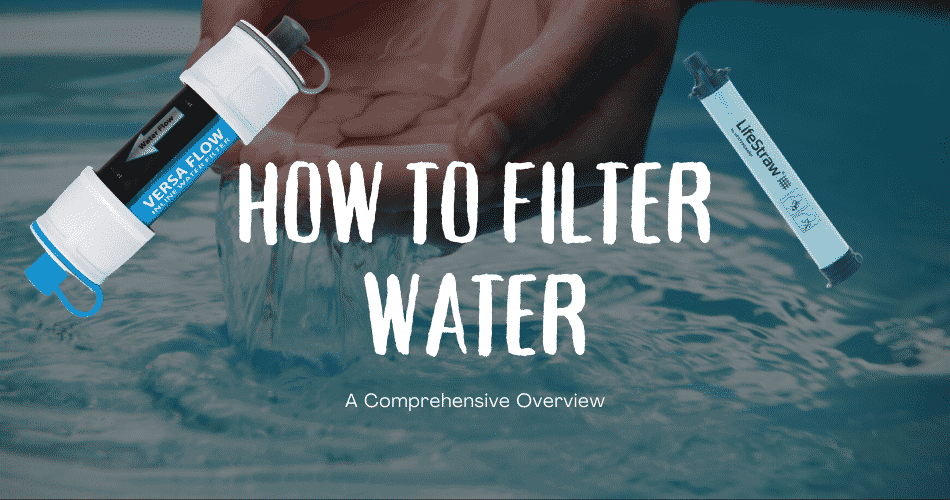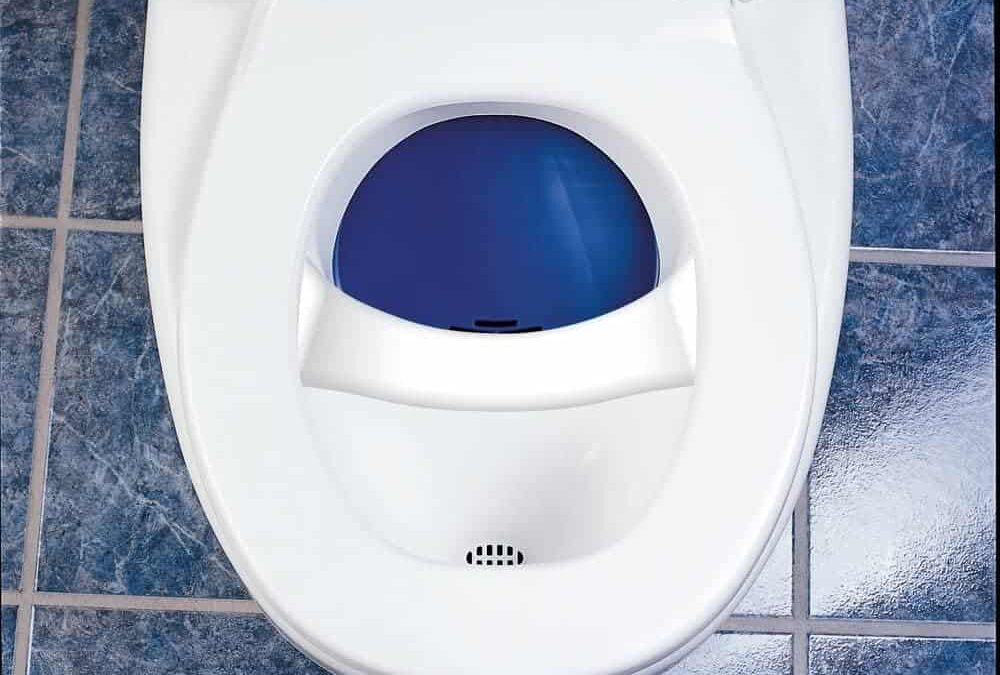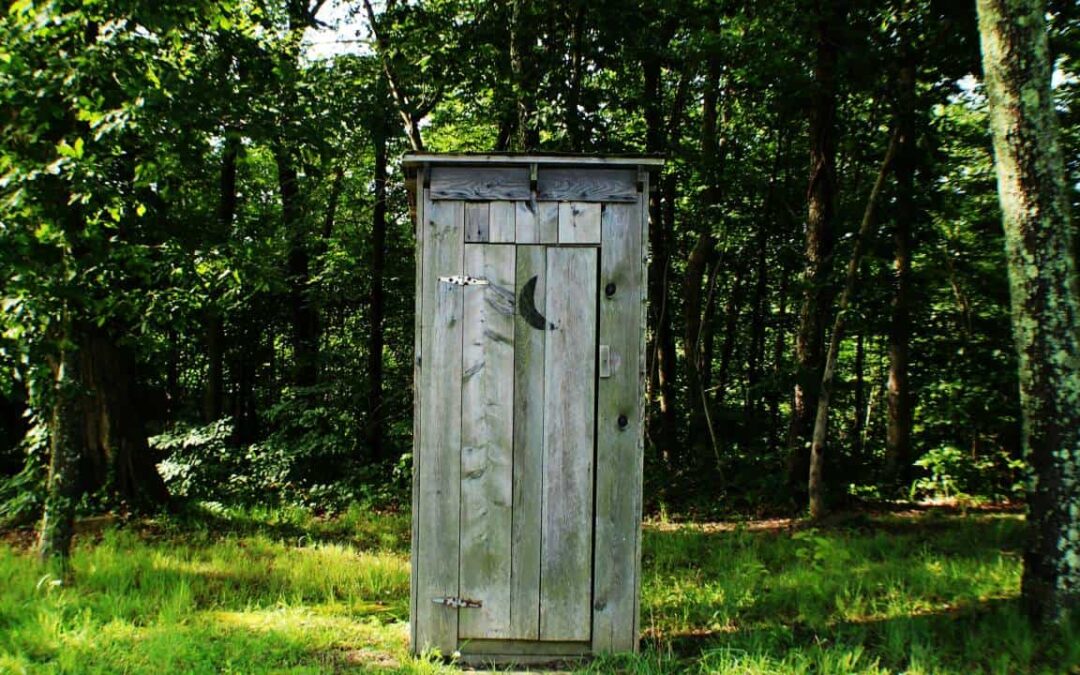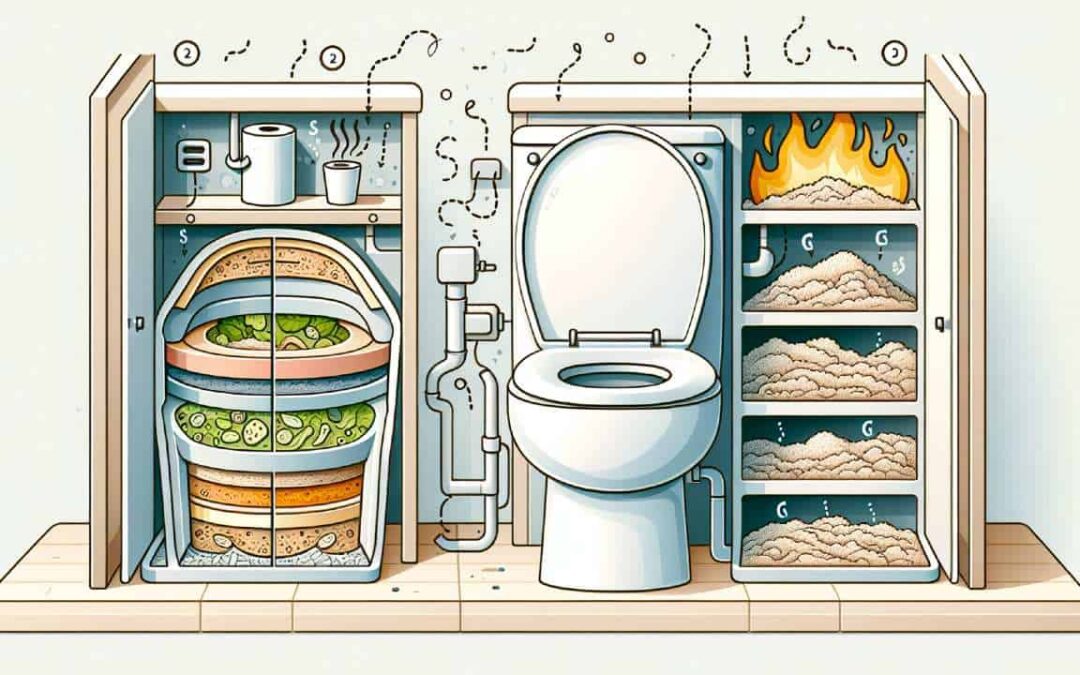In terms of staying alive, clean drinking water is surpassed only by air to breathe in importance.
One thing I’ve noticed while talking to friends and others in the hiking, off-grid living, and international travel communities is a lack of understanding on just how to filter water.
With the hundreds of different portable filters, tablets, and fancy electronic solutions out there, it can be challenging to find out just what you need and where to get it.
As an avid backpacker for the last decade and as someone who has spent years traveling the U.S., I have a ton of experience when it comes to filtering water effectively.
In this article, I share that knowledge with you so you can know how to filter water effectively, ways to clean water without a filter, and the most commonly used types of water filters out there.
So let’s dive in.
How to Filter Water Without a Water Filter
While I highly recommend you bring a modern water filter whenever you think you’ll need to filter water, sometimes that isn’t possible. For those situations, you’ve got a few options.
The most basic and effective method is to boil water for a full minute. It will kill any potential biological threats such as bacteria, viruses, and protozoa. If you’re worried about chemicals or other non-biological contaminants, you can take it a step further and distill the water.
It starts the same way, bringing water to a boil, but collects the distilled steam instead of the boiled water itself. You can build a traditional still with cooling pipes and an evaporator, but an easier way by far in the field uses a pot, lid, and bowl.
Fill a pot with water up to about two inches below the level of a bowl you place inside it. Put the pot lid upside down to point down into the bowl and let it come to a gentle boil. As the steam condenses on the pot lid, it will drip down into the bowl as distilled water.
There are other methods to collect water in an emergency, but those two are the easiest to follow and the most effective.
Water Filters vs. Water Purifiers
Whenever I talk to people in the hiking, camping, and off-grid living community I find a lot of confusion surrounding water filters and water purifiers. I thought it best to spend a few sentences laying out just what they are.
Water filtration is a process that uses physical barriers to exclude contaminants such as bacteria, protozoan cysts, and sediment. It does a good job removing the most likely dangers in water but can’t entirely remove things like viruses, chemicals, and heavy metals.
Water purification can include water filtration, but it can also use a different methodology. Chemical purification tablets, UV purifiers, activated carbon filters, and high-end exclusion barriers can all be used to remove smaller threats.
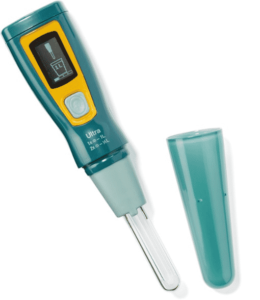
For hiking, camping, and portable use, remember that a water filter protects from bacteria and protozoa, while a water purifier also removes viruses.
For home and off-grid use, remember that water purifiers can also remove things like heavy metals, chemical contaminants, and even threats such as fuel contamination or hard water buildup.
Top Types of Water Filters
There are hundreds of different water filters available today, creating a real problem with over choice. The types below are by no means all the water filters out there, but they cover the most common use cases and types of filters you’ll encounter for hiking, camping, off-grid living, and emergency preparedness.
Hollow-Fiber Membrane Water Filters
By far, the most common type of portable water filter are hollow-fiber membrane filters. Nearly all hiking, camping, or preparedness focused water filter will have some kind of hollow-fiber membrane built into their design.
They use a filter medium with hundreds of hollow tubes that have tiny pores in the .2 to .02 micron size. A .2 micron hollow-fiber membrane filter can remove bacteria and protozoan cysts, while a .02 micron filter can even remove viruses.
The form factors of hollow-fiber membrane water filters include straw filters, squeeze style, filters, and all their variants and sub-categories.
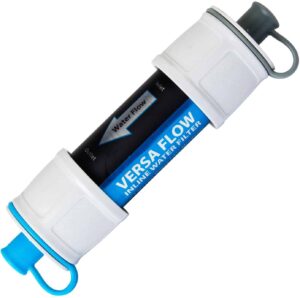
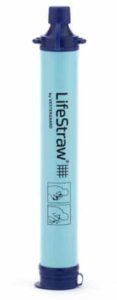
You can find out more about hollow-fiber membrane water filters and portable water filters in general by checking out my full category review.
Best For: Hiking, Camping, Van Life, RV camping, preparedness
Examples: HydroBlu Versa Flow, LifeStraw, Sawyer Mini
Countertop Water Filters
Countertop water filters come in two basic types. There are in-line filters that you plumb into your faucet connection and more traditional gravity-fed ala Berkey filters.
The in-line filters generally don’t filter out bacteria or other pathogenic threats, focusing on removing heavy metals, fluoride, and chemical contaminants from treated city water or tested well water.
Gravity-fed countertop water filters come in various types and styles but the stainless steel double reservoir model pioneered by Berkey is the most common. By filling the upper reservoir, gravity forces water down through various filters into a clean reservoir below.

Depending on the filter chosen you can do everything from removing pathogenic bacteria and viruses to reducing the lead content or protecting against chemical contaminants.
Learn more about countertop water filters and their benefits by checking out my full article, including my picks for the best countertop water filters.
Best For: Off-Grid Living, City Water, Heavy Metals, Chemical Contaminants, Improving Taste
Examples: Big Berkey, Alexapure Pro, Brita Pitchers,
Well-Water Filters
Well-Water Filters are a significant quality of life improvement for those living off the grid. They connect between your well tank and your home’s water system and filter every drop of water going through.
They’re great for those living totally off the grid as they can take significantly contaminated water and provide you with clean, pure drinking water. Many also remove things like iron, manganese and can double as water softeners.
Because of their large size and permanent installation, well water filters can often remove many more contaminants than smaller filters such as a hiking, camping, or survival filter.

You can learn more about well water filtration by checking out my full article on well water filtration and my picks for the best well filtration systems.
Best For: Off-Grid Living
Examples: Aquasana, Springwell, Pelican
Chemical Water Filtration
If you did any hiking back in the bad old days, you probably remember those little white iodine tablets. Before the recent water filter design innovations, they were among the most workable and popular methods to filter water while hiking, camping, or traveling off-grid.
They use a chemical purifier to kill bacteria, viruses, and protozoan cysts. They’re quite useful, but they have several downsides that don’t make them particularly attractive today.
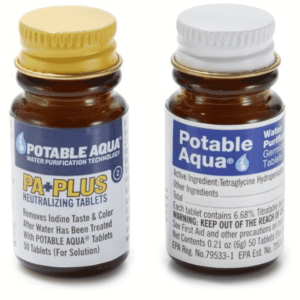
They’re slower than current squeeze or even pump filters, taking up to an hour to filter a liter of water, and they leave a noticeable after taste to the water itself. Add in that they’re significantly more expensive over the lifetime of a modern water filter, and they’ve been relegated almost entirely to emergency use.
Best For: Emergency Preparedness, International Travel
Examples: Potable Aqua Iodine Tablets, AquaTabs
Water Purifiers
Water purifiers take water filtration to the next level. As we covered above, they can destroy or remove pathogenic viruses from uncertain water sources.
There are a couple of ways they do this that touch on other filters on my list. Chemical water purifiers are one option, but they have significant downsides. Another is UV water purifiers that use powerful UV lights to destroy viruses at the DNA level.
They’re an excellent addition to a standard water filter, but don’t remove the particles once they’re dead. More recently, physical water purifiers have emerged that use the same principles as hollow-fiber membrane filters to physically exclude tiny viruses from water.
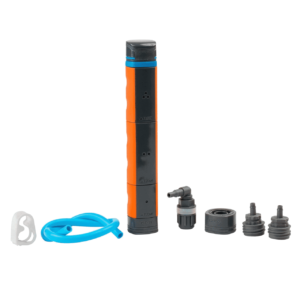
One thing to keep in mind is that the water in Western Europe, the U.S.A, and Canada is almost entirely virus-free. There are some exceptions, but generally, you don’t need purification capabilities for backpacking or traveling in the developed world.
If you’re going international or to an area with known virological contamination, you should pick one up.
Best For: Off-Grid Living, Uncertain City Water, International Travel
Examples: MUV Survival Filter, Big Berkey, Grayl GeoPress, Potable Aqua Iodine Tablets
Final Thoughts
Access to clean drinking water is essential for life. Nowadays, there are more ways to filter water than ever before, ranging from portable hiking and survival filters up to full house well water filtration systems.
Now that you know how to filter water check out some of our other great articles and reviews to find the water filters that best suit your needs:

